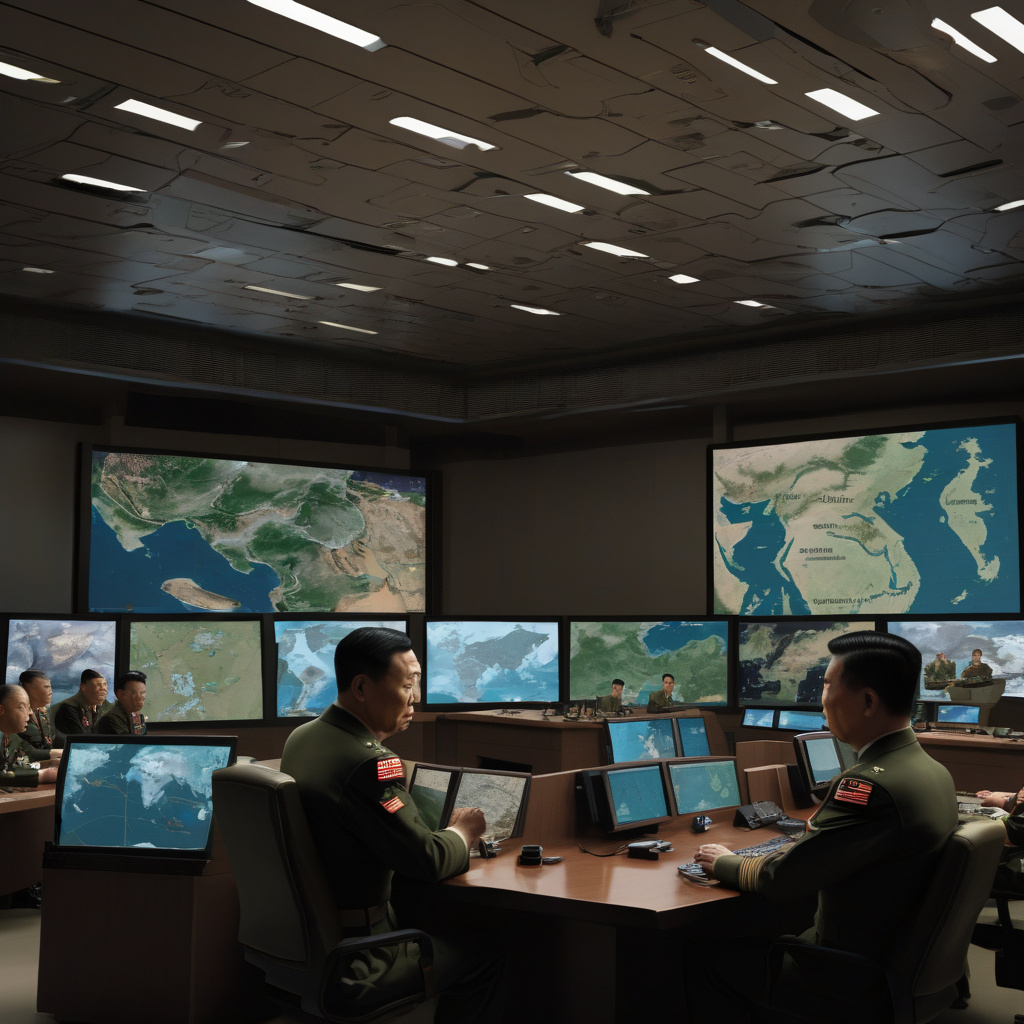China’s military won’t risk using US AI chips, claims Nvidia CEO amid rising tensions
Nvidia CEO Jensen Huang is under mounting political pressure as he prepares for a high-profile event in China. The tech giant’s leader made headlines recently by stating that China’s military won’t take the risk of using AI chips from the United States. This bold claim comes at a time of escalating tensions between the two global superpowers, with technology and national security at the forefront of the debate.
Huang’s statement sheds light on the intricate relationship between technology companies like Nvidia and geopolitical issues like the US-China trade war. The CEO’s assertion that China’s military would not dare to use American-made AI chips highlights the critical role that semiconductors play in modern warfare and national security.
Amidst the backdrop of increasing scrutiny over the export of advanced technologies to China, Huang’s remarks underscore the complexities faced by companies operating in the global tech industry. As the world becomes more interconnected, the lines between business, politics, and national interests continue to blur, forcing leaders like Huang to navigate treacherous waters.
Nvidia, known for its cutting-edge graphics processing units (GPUs) and advancements in artificial intelligence, finds itself in a precarious position. With a significant portion of its revenue coming from the Chinese market, the company must carefully balance its business interests with geopolitical realities. Huang’s comments regarding the use of AI chips in military applications serve as a reminder of the high stakes involved in the tech industry’s global supply chain.
The ongoing US-China tech rivalry has far-reaching implications, with both countries vying for dominance in critical technologies such as AI, 5G, and semiconductors. The escalating tensions have led to increased scrutiny of companies like Nvidia, which straddle the line between innovation and geopolitics. As governments around the world seek to safeguard their technological advantages, companies are finding themselves caught in the crossfire.
In the case of Nvidia, Huang’s assertion that China’s military would avoid US AI chips reflects the broader challenges facing tech companies in an era of heightened geopolitical tensions. As the CEO navigates the delicate balance between business interests and political realities, the world watches closely to see how Nvidia and other tech giants adapt to this new era of uncertainty.
As the US-China tech rivalry continues to unfold, Nvidia and its peers must tread carefully to avoid becoming collateral damage. The intersection of technology, business, and geopolitics has never been more complex, and leaders like Jensen Huang are at the forefront of this evolving landscape. In a world where AI chips and semiconductors are the new frontline, the decisions made by companies today will shape the future of global innovation and security.
In conclusion, Nvidia CEO Jensen Huang’s statement regarding China’s military and US AI chips highlights the intricate dance between technology companies and geopolitical tensions. As the US-China tech rivalry intensifies, companies like Nvidia find themselves at the center of a storm, forced to navigate competing interests and priorities. The road ahead is uncertain, but one thing is clear: the intersection of technology and geopolitics will define the future of innovation and security on a global scale.
Nvidia, CEO, Jensen Huang, China, US, AI chips












